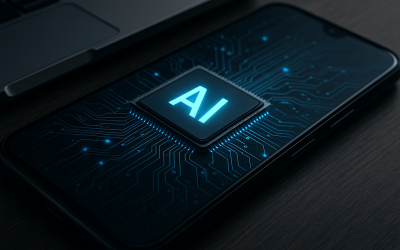Apple’s closed ecosystem has long been its competitive moat, but as artificial intelligence reshapes the tech landscape, this walled-garden approach is morphing from a strength into a strategic liability. In this article, we’ll dissect how Apple’s reluctance to open its platform is undermining its AI ambitions, examine the real-world consequences, and outline what’s at stake for the company’s future relevance.
The Legacy of Control: Apple’s Ecosystem as Fortress
Apple’s business model is built on end-to-end control. By tightly integrating hardware, software, and services, Apple delivers a seamless user experience that’s difficult for competitors to replicate. This “it just works” ethos has fueled customer loyalty, premium pricing, and outsized margins for over a decade.
But this control comes at a cost. Apple’s ecosystem is notoriously closed:
- Developers face strict App Store rules, high fees, and limited access to system-level APIs.
- Third-party hardware and software integration is restricted, often requiring Apple’s blessing.
- Data portability and cross-platform interoperability are intentionally limited to lock users in.
Historically, these constraints have protected Apple from commoditization and platform risk. However, the rise of AI—particularly large language models and generative tools—demands openness, data liquidity, and rapid experimentation. Apple’s fortress mentality now risks turning its ecosystem into a cul-de-sac.
AI’s Demands: Why Walled Gardens Don’t Scale
Modern AI thrives on scale, diversity, and collaboration. The most advanced models are trained on vast, heterogeneous datasets and improved through open research and developer communities. Companies like OpenAI, Google, and Meta are racing ahead by:
- Open-sourcing key models and tools to accelerate adoption and innovation.
- Allowing third-party plugins, extensions, and integrations to flourish.
- Enabling seamless data flows across platforms and clouds.
Apple, by contrast, remains insular. Its AI initiatives—Siri, on-device intelligence, and privacy-centric features—are siloed within its ecosystem. While Apple touts privacy as a differentiator, this isolation limits the company’s ability to leverage external data, attract top AI talent, or foster a thriving developer ecosystem.
The result? Apple’s AI offerings lag behind competitors in capability, flexibility, and real-world utility. Siri remains a punchline compared to ChatGPT or Google Assistant. Apple’s AI research is rarely published or open-sourced. And developers looking to build cutting-edge AI experiences often find Apple’s tools restrictive and underpowered.
The Strategic Cost: Missing the AI Platform Shift
Platform shifts in tech are unforgiving. Microsoft’s dominance in the PC era was threatened by the web; Google’s search empire was challenged by mobile. Each time, the winners were those who embraced openness, not those who clung to control.
AI represents the next platform shift. The companies that become the default AI layer—powering everything from productivity to creativity to personal assistance—will capture the next decade of value. Apple’s refusal to open its ecosystem is already costing it:
- Developer Flight: AI startups and researchers gravitate toward platforms with fewer restrictions and richer APIs—think Android, Windows, and open cloud environments.
- Stagnant User Experience: Apple’s AI features are incremental, not transformative. Users increasingly turn to third-party apps or web-based tools for advanced AI capabilities.
- Brand Erosion: Apple risks being seen as a laggard in the most important tech race of the decade, undermining its premium positioning.
In short, Apple’s moat is turning into a moat around an empty castle. The company’s insistence on control is creating a vacuum that competitors are eager to fill.
What’s Really Driving Apple’s Reluctance?
To understand Apple’s strategy, follow the incentives. Apple’s closed ecosystem is not just a technical choice—it’s a business imperative. The company’s services revenue, now a major growth driver, depends on keeping users locked into Apple’s platforms and payment rails. Opening up would mean:
- Lowering App Store fees and ceding control over distribution.
- Allowing data to flow more freely, potentially undermining privacy claims.
- Risking commoditization of hardware as AI becomes the primary differentiator.
Apple’s board and leadership are betting that customers value privacy and simplicity over AI power and flexibility. But this is a risky wager. As AI becomes table stakes for productivity, creativity, and communication, users may start to view Apple’s ecosystem as a constraint rather than a benefit.
The real story: Apple’s reluctance is less about technical limitations and more about protecting its business model. The company is prioritizing short-term revenue over long-term platform relevance—a classic case of the innovator’s dilemma.
Signals That Matter: What to Watch Next
For strategic thinkers and technical leaders, the key is to look past Apple’s marketing and watch for real signals of change. Here’s what matters:
- API and SDK Openness: Does Apple meaningfully expand access to AI APIs, or does it continue to restrict developers to a narrow set of tools?
- Cross-Platform Integrations: Will Apple allow its AI features to work seamlessly with non-Apple devices and services, or keep them locked down?
- Talent Movement: Are top AI researchers and engineers joining Apple, or leaving for more open, ambitious environments?
- Regulatory Pressure: Will antitrust and privacy regulators force Apple to open up, as they did with the App Store in Europe?
Ignore the hype cycles and product launches. The real test is whether Apple can adapt its culture and incentives to the demands of the AI era. If not, the company risks repeating the mistakes of past incumbents who mistook control for progress.
Conclusion: Adapt or Become Irrelevant
Apple’s closed ecosystem, once its greatest asset, is fast becoming a liability in the age of AI. By prioritizing control over openness, Apple risks missing the next platform shift and ceding its leadership to more adaptive competitors. The lesson is clear: in the world of AI, those who refuse to open up will be left behind. Strategic leaders should watch Apple’s next moves carefully—and be ready to act where it won’t.



0 Comments